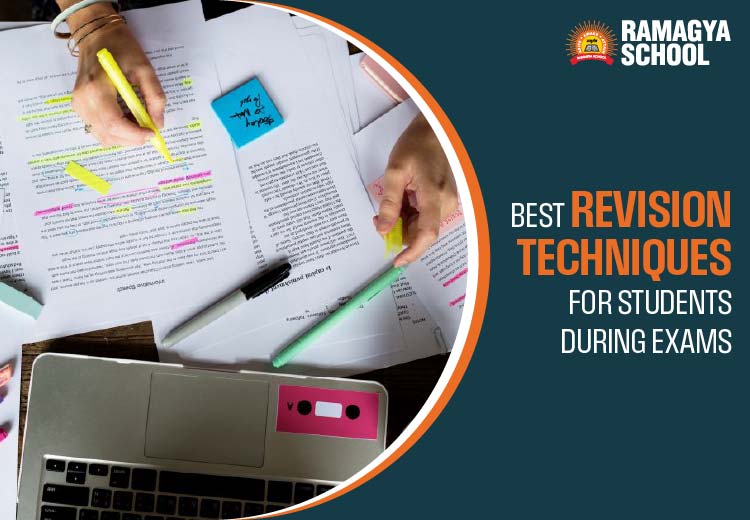Exam preparation can be stressful, but the right revision techniques can make the entire process much simpler. Many students keep asking the best way to study for their exams, how to manage time and remain relaxed during the exam phase. Revision doesn’t have to be difficult. With a few simple steps and smart planning, any student can boost their performance. This blog will provide you with simple and efficient suggestions, including last minute revision tips for exams and study tips for board exams that any student can follow.
Also read: How can you create an effective study schedule for good marks?
Start With a Clear Plan
Before you start studying, you should make a simple outline. It doesn’t need to be anything fancy, just a simple timetable which outlines the things you must do every day. It helps your brain to stay organized. It also helps you stay calm as the exams get closer. When you want to know how to prepare for exams, planning is always the first step.
Use Short and Simple Notes
One of the best revision techniques is writing short notes. When you write something in your own words, you understand it better. You can also use color or highlighters to mark crucial lines. These notes are helpful in last minute revision tips for exams since they are simple to understand quickly.
Revise in Small Chunks
Don’t study for a long time in one stretch. You should study for 30 to 40 minutes, then take a break for a few minutes. It keeps your mind energized and alert. Many teachers also say that this is one of the most effective study tips for board exams because it improves focus. Small studies can help you to remember more information and you’ll feel less stressed.
Teach Someone What You Learned
Teaching is an excellent way to revise. Discuss the subject with an adult, a sibling or even to yourself. This improves comprehension and increases confidence. When you explain something aloud, you automatically understand it better. This is also helpful when you’re trying to figure out the best way to prepare for exams in a simple way.
Focus on Understanding, Not Just Memorizing
Memorizing may help sometimes, but understanding is always better. If you’re able to grasp an idea, you are able to respond to questions in any format. This approach is extremely effective in preparing for board exams since they often have application based questions. This can help you to answer any kind of question.
Practice Previous Year Papers
Past papers help you understand the type of questions that usually come. They also help in managing the time during the exam. A lot of students use this method when they look for how to prepare for exams as it improves confidence and lessens anxiety.
Stay Away From Distractions
Make sure to keep your phone off when you are studying. Games, social media and constant notifications could distract you. Make sure you study in a quiet space or wear earplugs when needed. An environment that is free of distractions is one of the best revision techniques during exam season.
Stay Calm and Sleep Well
Sleep is essential. Without adequate rest, the brain will not be able to concentrate. Many students try to be awake all night, however this affects their memory. A good night’s sleep is also a part of the study tips for board exams, as the brain is fresh and more efficient.
Last Minute Revision Tips for Exams
When exams are just a day or two away, do not start learning new topics. Concentrate on the things you already are familiar with. Read your short notes, summaries, and formulas. Review important diagrams or definitions. Revise only the most important areas. These tips for revision for exam preparation will help you remain relaxed and calm.
FAQs
1. How many hours should I study during exam time?
There is no fixed number. Study for a few hours with full concentration instead of studying the whole day without focus.
2. Is writing notes better than typing notes?
Yes. Writing improves memory because your brain processes information more deeply when you write by hand.
3. How can I avoid forgetting what I studied?
Revise regularly. Even 10 minutes of revision the next day helps your memory become stronger.
4. Should I study early in the morning or late at night?
Choose the time when your mind feels fresh. Every student has a different rhythm.
5. Is group study helpful?
Yes, but only if everyone stays focused. Group study helps when you discuss and explain topics to each other.




